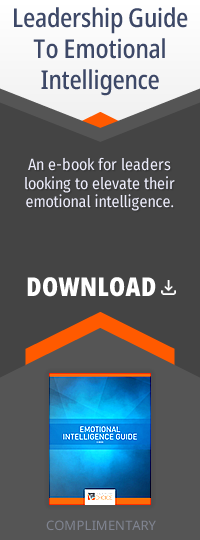How AI Can Help You Become a Better Leader (and Where It Falls Short)
Imagine having a virtual coach who knows your strengths, tracks your development, and offers real-time insights.
It’s not science fiction; it’s artificial intelligence (AI).
And AI is already reshaping leadership development. In a survey conducted by Deloitte, over 80% of executives said AI is critical to their organization’s success, including its use in fostering leadership skills.
AI tools are revolutionizing industries, providing personalized insights, automating tasks, and supporting decision-making processes. For leaders, these advancements can mean faster problem-solving, deeper data analysis, and more efficient team management.
But AI isn’t a complete replacement for the human qualities that define great leadership.
Explore with us the role AI can play in helping leaders grow and highlight the areas where it simply cannot compete with the power of human connection and creativity.
How to Leverage AI for Leadership Excellence
As a leader, your ability to adapt, communicate, and make decisions directly influences your success. AI offers tools to enhance these capabilities, providing new ways to refine your skills and confidently lead.
From personalized learning to advanced analytics, AI can give you a competitive edge in navigating challenges and opportunities.

Here’s how AI can help you grow as a leader:
1) Personalized Learning and Skill Development
AI platforms specialize in creating customized leadership growth plans based on your unique strengths and weaknesses. Tools like AI-driven assessments can evaluate your decision-making patterns, communication styles, and even your emotional intelligence. For example, platforms like BetterUp or Gloat analyze your performance data to suggest actionable steps, such as improving delegation skills or handling conflict more effectively.
These platforms adapt as you progress, ensuring that your development stays relevant. Whether you’re honing public speaking skills or learning to manage remote teams, AI tailors content to your goals. This level of personalization allows you to spend less time guessing what to improve and more time implementing meaningful changes.
2) Data-Driven Insights for Decision-Making
Effective leadership relies on making informed decisions quickly and confidently. AI excels at processing massive datasets to uncover trends and actionable insights that would be impossible to analyze manually. For instance, AI tools like Tableau or Microsoft Power BI can visualize market trends, employee engagement metrics, or customer feedback, helping you prioritize the right initiatives.
One notable example is how AI-assisted analytics transformed decision-making for a Fortune 500 company during a major product launch. By analyzing customer sentiment and competitor activity in real-time, leadership adjusted marketing strategies mid-campaign, resulting in a 20% increase in sales.
This kind of agility (powered by AI) ensures you’re not just reacting to changes but staying ahead of them.
3) Efficient Communication and Collaboration
Your time is one of your most valuable assets; AI tools can help you reclaim more of it. Chatbots, virtual assistants, and scheduling software like Zoom AI Companion or Otter.ai streamline administrative tasks.
Think of these note-taking AI apps.
AI can automatically summarize meeting discussions, identify action points, and distribute follow-ups, ensuring clarity and alignment across your team.
In addition, AI collaboration platforms like Slack GPT enable faster responses to questions, allowing you to focus on building strategies and solving complex problems instead of handling routine inquiries. These tools ensure communication across your team is smooth and productive, no matter the scale or urgency of the task.
4) Continuous Feedback and Coaching
Real-time feedback is essential for improvement, and AI provides it without bias or delay. Tools like Humu or Leapsome use sentiment analysis to gauge team morale and identify potential issues before they escalate. By analyzing email patterns, survey results, or performance data, these platforms offer actionable coaching tips, such as motivating an underperforming team member or improving meeting effectiveness.
Unlike traditional feedback processes – which can be sporadic and subjective – AI delivers consistent and objective input. This empowers you to make adjustments quickly and fosters a culture of continuous growth within your team.
——–
AI (as of the time of this writing) provides leaders with powerful tools to sharpen your leadership skills, enhance decision-making, and optimize communication.
How AI Cannot Help You Become a Better Leader.
The Irreplaceable Human Touch in Leadership
While AI can enhance efficiency and provide valuable insights, leadership goes beyond algorithms and automation.
The qualities that define great leaders (communication, empathy, judgment, trust, and creativity) are profoundly human and cannot be replicated by machines (at least not yet).

Here’s why AI has limits when developing you as a truly exceptional leader:
A) Emotional Intelligence and Empathy
Great leaders connect with others on a deeply emotional level, navigating complex interpersonal dynamics with understanding and care.
AI, for all its data-processing power, cannot genuinely comprehend or respond to the emotions of your team. While tools like sentiment analysis can detect tones of frustration or enthusiasm in written communication, they lack the context and intuition needed to address the root causes.
Imagine a team member struggling with personal challenges that affect their performance. An AI might flag a dip in productivity or a pattern of disengagement, but it takes a human leader to have a heartfelt conversation, offer support, and rebuild confidence.
This level of empathy fosters loyalty and morale, areas where AI just can’t cut it.
B) Ethical Judgment and Moral Decision-Making
Leadership frequently involves navigating ethical dilemmas that require human values and critical thinking.
AI operates based on programmed parameters and historical data, which makes it ill-equipped to handle morally ambiguous scenarios.
Think about the tough decisions around layoffs, diversity initiatives, or resource allocation. These often require balancing business goals with ethical considerations – something only we (humans) can weigh effectively.
Relying too heavily on AI in these situations can lead to impersonal or even harmful outcomes.
Consider cases where biased data has led AI tools to suggest discriminatory hiring practices. As a leader, your responsibility is to recognize such flaws and make decisions aligned with your principles, a task no AI can take over.
C) Building Trust and Authentic Relationships
Trust forms the foundation of any successful leadership dynamic. While AI can assist with tasks like onboarding or team communication, it cannot create the kind of authentic relationships that inspire and motivate people.
Trust is earned through shared experiences, qualities AI cannot demonstrate.
There was a global technology firm where executives used face-to-face interactions to rebuild trust after a major restructuring. While AI helped streamline workflows during the transition, it was the leaders’ personal accountability and direct engagement that restored morale.
These human connections are essential in creating a cohesive and resilient team.
D) Creative Vision and Innovation
AI can analyze trends and suggest optimizations but cannot imagine possibilities beyond the data!
Leadership often requires a visionary mindset to develop bold ideas, inspire teams, and take calculated risks to achieve transformative outcomes.
Think of leaders like Elon Musk or Oprah Winfrey (whether you agree with them or not); they’ve disrupted industries (Space X and TV, respectively) through their creativity and passion.
AI may help operationalize their strategies, but it cannot originate the ideas or foster the enthusiasm that propels teams toward groundbreaking achievements.
———
Leadership is not just about making decisions or managing processes, it’s about connecting with people!
While AI can assist in many areas, the qualities that make you a great leader remain uniquely human and irreplaceable.
AI is a Powerful Tool with Human Limitations
AI offers immense potential to enhance your leadership abilities by streamlining processes, providing actionable insights, and supporting skill development.
However, it cannot yet replicate the uniquely human qualities that define great leaders (ethics/morality, communication, empathy, etc.), and the ability to build trust.
As you integrate AI into your leadership strategy, focus on using it as a complement, not a replacement. Leverage its strengths to refine your efficiency and decision-making while cultivating your emotional intelligence, ethical awareness, communication skills, and innovative thinking.
Remember, AI can provide guidance and support, but at the heart of the best leadership is human connection!
About the Author:
Pat Bosworth
Founder and CEO Patrick effectively coaches leaders at all levels and across a number of industries with a pragmatic, consultative approach. Previously, he was vice president with Right Management and held other senior OD and development positions in manufacturing and the professional services Industries.
He holds an M.S. in Industrial/Organizational Psychology from Lamar University.



